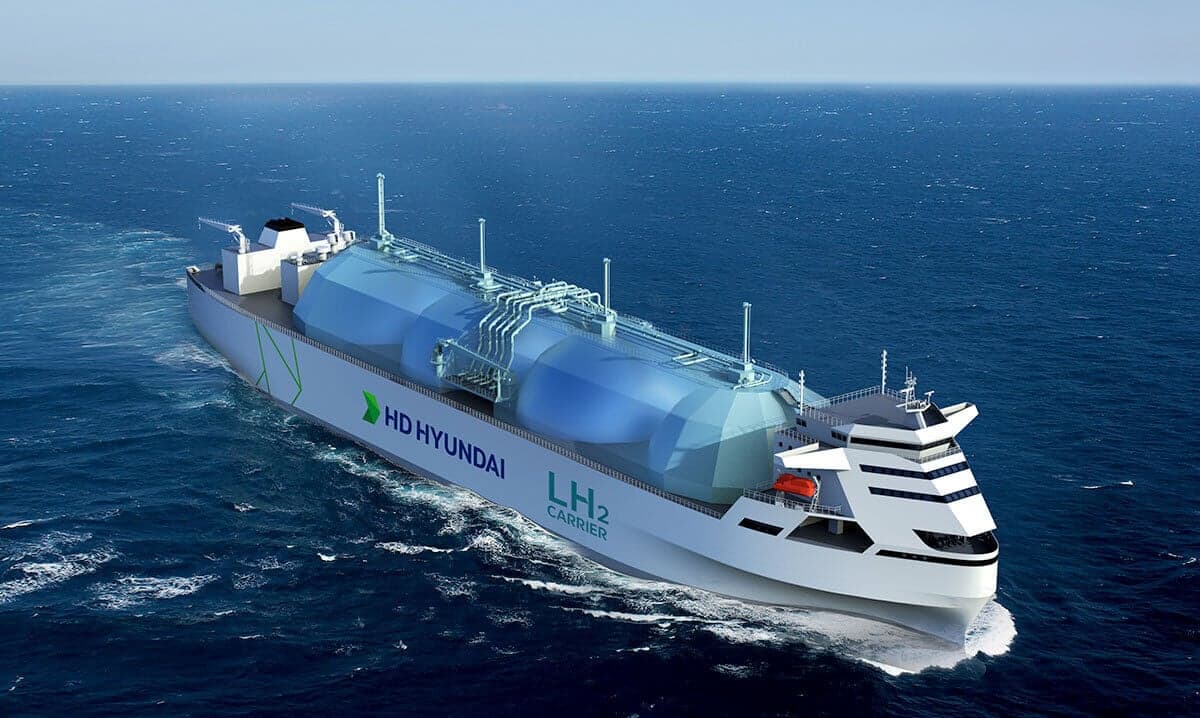Japan's Transition to Clean Hydrogen Future: Liquid Hydrogen Carrier Vessels on the Horizon
Key Ideas
- Mitsui O.S.K. Line and Kansai Electric Power Co. plan to study liquid hydrogen carrier vessels to enhance Japan's hydrogen supply chain.
- The consortium, including major companies like Woodside Energy and Hyundai Glovis, aims to build and operate a vessel capable of carrying up to 80,000m3 of hydrogen by 2030.
- Japan aims to increase its clean hydrogen supplies and transition to hydrogen and derived fuels to decarbonize, replacing LNG and coal with renewable sources by 2050.
- A 2023 Hydrogen Council report suggests that over 16% of Japan's electricity generation capacity could be supplied by imported hydrogen and ammonia by 2050.
Japanese companies Mitsui O.S.K. Line and Kansai Electric Power Co. have entered into a partnership to jointly study liquid hydrogen carrier vessels, aiming to enhance Japan's hydrogen supply chain. By signing a Memorandum of Understanding, the companies will focus on reviewing vessels and operations in the liquid hydrogen supply chain, including international laws and regulations. The collaboration also covers overseas production of renewable hydrogen, its transportation via ship, and utilization in various industries and power generation to contribute to establishing a robust hydrogen supply chain in Japan. MOL has been actively involved in developing liquid hydrogen carrier vessels, with its recent ship design receiving Approval in Principle from DNV. The consortium, which includes prominent companies like Woodside Energy and Hyundai Glovis, is set to build and operate a vessel capable of transporting up to 80,000m3 of hydrogen by 2030. Japan is determined to scale up its clean hydrogen supplies, planning to replace current LNG and coal imports with hydrogen and derived fuels alongside renewable energy sources like wind and solar by 2050. A 2023 report by the Hydrogen Council suggests that Japan will need to import hydrogen to meet its electricity needs, with over 16% of the nation's power generation capacity projected to come from imported hydrogen and ammonia by 2050.
